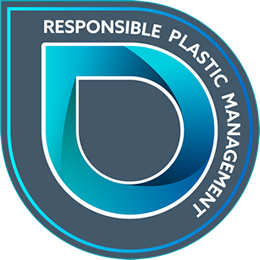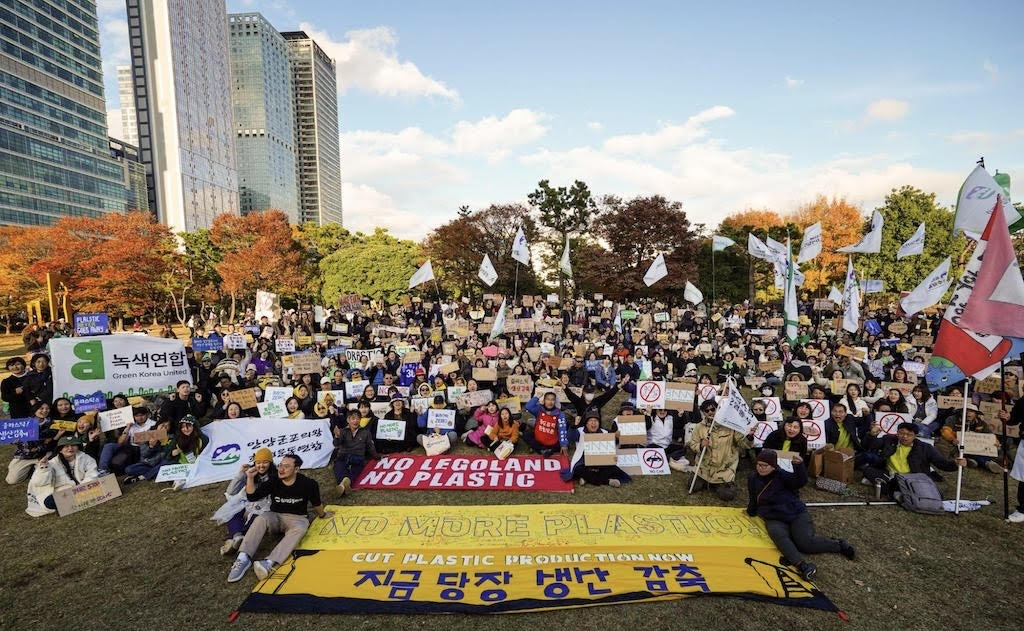The development of a legally binding UN treaty is a once-in-a-generation opportunity to tackle the plastic pollution crisis in a globally coordinated way.
The resolution adopted at the UN Environmental Assembly in March 2022 marked the start of the intergovernmental negotiation process for a global plastic treaty. It was a clear call for system change towards a circular economy for plastics, ensuring it stays in the economy and out of the environment.
Collaboration
The Business Coalition for a Global Plastics Treaty commenced in September 2022, over 80 organisations, including the RPM Program and businesses from across the plastics value chain, financial institutions and NGOs, aligned on a shared vision, which seen the treaty as the key policy mechanism to accelerate progress in three critical areas: the reduction of plastic production and use through a circular economy approach, increased circulation of all necessary plastics, and the prevention and remediation of hard-to-abate micro- and macro-plastic leakage into the environment.
Our Coalition developed ambitious policy recommendations, aligned with our vision, we engaged with treaty negotiators, to build confidence in the business community on the benefits and necessity of an effective treaty that set common goals, rules, and obligations to be implemented in national jurisdictions.
Despite tireless efforts by the INC Chair and government negotiators to finalise a global plastics treaty, it was not agreed in Busan, as planned.
After a week of negotiations, INC-5 came to a close with no agreement reached over the Global Plastics Treaty, and another session is now expected to take place in 2025 – an outcome many blame on ‘low-ambition countries’ stalling progress for their own ends.
On a positive note over 3,800 participants registered, which UNEP says is the highest attendance of any of the meetings so far. Within this figure were 177 countries and 600 observing organizations.
- Four contact groups were expected to convene, covering the following topics:
Plastic products, the chemicals of concern used within them, product design, and topics related to the production and supply of plastics; - The management of plastic waste, emissions, and releases; legacy plastics on land and in the marine environment, and achieving a just transition;
- International collaboration; establishing a financial mechanism, building capacity, technology transfer and technical assistance;
- Implementation and compliance; national plans; reporting, monitoring, and evaluating progress and effectiveness; exchanging information and increasing education, awareness, and research.
Various organizations spoke out about their visions of the final instrument.
The Ellen MacArthur Foundation underlined the importance of resolving division between countries aiming for a global treaty and those that would prefer national guidelines. Its view was that upstream actions like restricting or phasing out avoidable plastic products, redesigning essential plastics, and expanding reuse models would make ‘the most meaningful impact’.
WWF supported the introduction of science-based criteria to inform global bans on the ‘most harmful’ plastic products and chemicals; binding product design and performance requirements and systems; and new systems to reduce, reuse, and safely recycle the remaining plastics, among other measures.
Early days
Members of the ‘Like-Minded Countries’ – and, within it, the ‘League of Arab States’ – were accused by WWF of ‘aiming to derail, or at the very least, slow down negotiations’ during the Plenary Session by employing ‘delay tactics’. Their criticisms lay in the contents of the non-paper and the treaty’s scope.
Nevertheless, the United States, United Kingdom, Norway, Brazil, Samoa, Rwanda, and the Republic of Korea were among the countries backing the non-paper and pushing for its adoption, at which point negotiations could commence.
“After days of complaints of agonisingly slow and unproductive discussions in Contact Groups, the Chair is responding to the frustration shown at yesterday’s plenary session where many negotiators made impassioned pleas that they needed to just get on with business in the face of ongoing delaying from spoiler states,” Eirik Lindebjerg commented. “And the business at hand is making sure that we leave Busan with a strong treaty that does not compromise on establishing global and binding rules across plastics’ entire lifecycle.”
The turning point?
WWF expressed its concerns about the revised text’s ‘low level of ambition’. It alleged that “countries that have professed high ambitions for the treaty have not weighed in strongly enough to prevent a weak and voluntary one from emerging.”
For example, the proposed measures on plastic products and the chemicals of concern within were believed to be too broad; they did not contain the global bans or phase-outs that most Member States had shown support for.
Over 80 countries issued an ultimatum : they would not accept a global treaty on plastic pollution without binding global bans, phase-outs on harmful products and chemicals, and other ambitious measures. The Chair’s draft text was then updated to accommodate this demand.
While WWF felt that further negotiations were still in order – and that “this is where countries should have been earlier in the negotiations” – the new draft was hoped to serve as a “constructive turning point” as the final hours of negotiations loomed. This was especially important as, in the NGO’s opinion, the treaty text as it stood “show[ed] little promise of establishing strong and binding measures that can give humanity a chance at ending the scourge of plastic pollution.”The
Wrap-up
Ultimately, the plenary session concluded with an agreement to use the Chair’s revised text as a general basis to resume negotiations at another INC session (INC-5.2).
“Nothing is agreed until everything is agreed,” Luis Vayas Valvidieso told the delegates, but this did not assuage the widespread disappointment among the ambitious majority and eager attendees.
While the EU stressed that “we are not leaving Busan discouraged”, Mexico joined a group of 95 countries emphasizing their refusal to accept a treaty that did not include binding global bans and phase-outs for harmful plastic products and chemicals of concern. Meanwhile, Juliet Kabera, lead negotiator for Rwanda, urged countries to symbolically support an ambitious and globally binding treaty covering the whole life cycle of plastic products.
A number of delegations felt that the draft text did not always reflect discussions held throughout the week, with certain “red lines” drawn by negotiators still absent. In particular, an article on scope is reportedly missing, as is any response to the African Group’s proposed text on the financial mechanism.
The Arab Group and the Russian Federation felt that discussions were better reflected in the non-paper containing the draft text of the Chair of the Committee, but expressed their willingness to continue discussions around the Chair’s text.
WWF expressed its disappointment that no agreement was reached “despite a vast majority of governments demanding ambitious measures that science has shown can stop plastic pollution.”
“It’s disheartening to walk away from INC-5 without a meaningful treaty in hand,” said vice president and head of plastic waste and business Erin Simon. “Allowing a minority of actors to obstruct progress through the week, predictably resulted in breaking the promise made at the beginning of these talks.
“As we look ahead to 2025, and navigate what an INC 5.2 could look like, countries must come to the table ready to fight for our future. The current draft has some of the ingredients for success, but we can’t back down on delivering a legally binding text that finally puts us on a course to eliminate plastic pollution.”
The RPM and Coalition Viewpoint
As of right now, there is no set date for INC-5.2. Some feel that the session should be convened in the first half of 2025 in hopes of carrying over the ambition and energy from INC-5; others feel that there is too much work to be done and suggest that July or August 2025 are more realistic deadlines.
RPM will keep posting updates as the discussions move forward. We are i encouraged by the increased alignment amongst over 100 countries on critical elements such as global phase-outs and sustainable levels of plastic production. Never before have so many countries clearly articulated support for these obligations. The latest text from the INC Chair is also a step forward on product design and waste management as a basis for future negotiations.
Disappointingly, consensus among all nations remains elusive, which further delays critical action to end plastic pollution. It also fails to deliver the certainty that business needs to mobilise investment and scale solutions.
At the next planned INC5.2 session, governments must make a choice. They can continue negotiating a treaty with universal support but little impact. Or they can agree on a treaty based on strong global rules across the full lifecycle of plastics and with a comprehensive financing mechanism, confident in knowing that this is what the majority of governments, business and citizens want. There’s no time to waste: we cannot afford this process sliding into unending negotiations.
RPM and the 275+ members of the Business Coalition stand ready to work together with policymakers across the world to secure the treaty that business needs, and the majority of nations want.

